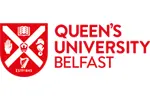

the United Kingdom
Queen's University Belfast| The award | How you will study | Study duration | Course start | Domestic course fees | International course fees |
|---|---|---|---|---|---|
| PhD | Full-time, Part-time | 3 - 6 years | - | - | GBP 18000 per year |
Anthropology at Queen's is internationally renowned and a long established and rapidly expanding centre for postgraduate teaching and research training. Examine human behaviour and relationships under expert research supervision and join a vibrant interdisciplinary postgraduate research community that includes students from all over the world. Our programme, collaborations with other departments and institutions, and excellent resources mean that whatever your area of interest, there is the anthropological expertise to match. We offer supervision in a wide range of topics, including aspects of social and economic change, borders and migration, conflict transformation and human rights, emotions and the senses, gender, kinship and marriage, environmentalism, tourism, new religions and political movements, ethnomusicology, and performance, art and culture. A flourishing programme of events, seminars, and research groups complements our postgraduate courses and doctoral supervision. Our world-class academics provide research students with excellent supervision. Learn more about our expertise and click here to find a Phd supervisor and explore research areas. About the Programme: This programme involves substantial original research, normally including ethnographic fieldwork of 12 months and leading to the production of a thesis of up to 80,000 words. The PhD programme is designed to provide training in the methods of independent research and will provide the student with a professional credential at the highest level. The research normally will be based upon an analysis of original field research materials. Normally, PhD students during the first year, after about 10 months (or 20 in part-time study) will be examined in the differentiation. In order to progress on the PhD pathway, successful completion of differentiation, and, if required, approval of an Ethical Review application, are conditions for students to proceed to field research for a year (anywhere in the world including the UK). It is expected that students commence the fieldwork from July onwards. The School will provide training for the fieldwork, a risk assessment will be conducted and students will discuss with their supervisory team about the resources that will be required. Supervisors offer support throughout the year at the field site. The location of the field is your choice, but this is judged and agreed on the merit of the research at the differentiation. After fieldwork, students return to the University and start writing their thesis under the guidance of their supervisors. Research Areas: Our regional interests include Ireland, the British Isles, Europe, Africa, South Asia, South East Asia, Japan, the Caribbean, Latin America, Melanesia and Australia. We offer supervision in a wide range of topics, including: •Aspects of Social and Economic Change •Borders, Migration and Transnationalism •Conflict Transformation and Human Rights •Emotions and The Senses •Ethnomusicology •Gender, Kinship and Marriage •Human/Animal Relations and Environmentalism •Identity, Ethnicity and Nationalism •Symbols and Rituals •Music, Popular Culture and Tourism •New Religions and Political Movements •Performance, Art and Material Culture •Public Policy Mode of study/duration: Registration is on a full-time or part-time basis, under the direction of a supervisory team appointed by the School. You will be expected to submit your thesis at the end of three years of full-time registration for PhD. Research Seminars: Anthropology postgraduate life centres around the weekly Anthropology seminar, and a regular postgraduate seminar, as well as regular events within the School, in the Institute for Cognition and Culture and the Institute of Irish Studies. Community The postgraduate community within the School is lively, energetic and diverse and, contribute enormously to the research culture of the school. It includes many of our own graduates, as well as graduates of British and Irish universities such as Edinburgh, Glasgow, Oxford, and UCD, and international institutions such as Princeton, Georgetown and Minzu University Beijing. Careers: We are proud of the students who have graduated with their doctorates. Where possible we stay in touch so that the link and relationships remain long after a student has left the School. View our alumni here. Recent doctoral graduates in Anthropology have gone on to postdoctoral positions in a range of institutions, including the University of Stirling, University of Oxford, Minzu University, University of Waterloo, Masaryk University, University of Sydney and University College Cork; PhD graduates also find employment with a very wide range of employers, including the Council for International Educational Exchange, Handelsbanken Bank, the Institute for Conflict Research, US News and World Report and the Bangladesh Civil Service. ]
Contact Queen's University Belfast to find course entry requirements.
Below are some suggested courses at other providers that you may also be interested in:
Online Master of Science in Operations and Supply Chain Management MSc, MSc
GBSB Global Business School
Find out moreInternational Entrepreneurship Professional Bachelor Degree
KdG University of Applied Sciences and Arts
Find out moreIf you do not meet the entry requirements for this course then consider one of these postgraduate preparation courses from another institution:
Graduate Diploma of Engineering (Industrial Automation)
Engineering Institute of Technology
Find out moreThere are 462 other courses listed from Queen's University Belfast. A selection of these are displayed below:
Join the Сưłć´«Ă˝ email list and never miss a chance to turn your study abroad dreams into reality!

See other universities in Belfast
Find out more about studying in the United Kingdom